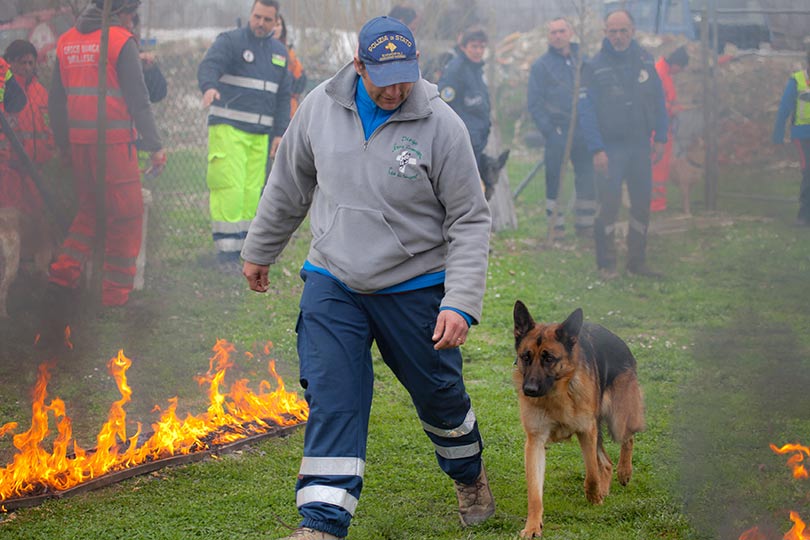
Dogs with Jobs
When we think about dogs, we usually envision them living alongside and being part of the family unit. Running on the beach and playing at the park. But not all dogs are destined to end up as family pets. Some end up as working dogs and this can often come with an incredibly difficult job to do every day. ??And most of them absolutely love having a job to do, since the training is full of rewards and they are usually incredibly valued for their roles. So what sort of jobs can dogs do and what are the key things that make these dogs so special?
Training
There are a few main areas that all types of working dogs are trained in, according to the Delta Society. The first is learning to ???heel???, which is actually one of the harder things to teach your dog to do well. And once trained the dog???s ability to heel needs to be very reliable even with distractions. Which leads into the next important step for all dogs with a job which is called ???proofing???. The dog needs to be able to completely ignore distractions, which means never showing fear of anything or giving chase or giving into the temptation to take food from someone or play while on duty. Once these two things are trained, along with some basic obedience, the dog can then be trained for the task at hand.
Once trained there are many jobs a dog can do but the main ones are:
Guide Dogs
Guide dogs need at least 2 years of training to make the cut and training them requires a great deal of time, money and patience. Usually guide dogs are purpose-bred Labradors or Golden Retrievers that spend the first 12 months with dedicated puppy raisers for their initial training and socialisation period. Even so being a guide dog is a pretty important gig and not all of them make it through the minimum of 2 years training they undertake. Those that don???t make the cut tend to become other types of therapy dogs or are adopted by their puppy raisers.
Assistance or Therapy Dogs
Just because someone has a disability doesn???t mean they shouldn???t be able to live safely and independently in their own home. Therefore dogs are often trained to help people with disabilities. They can be trained for tasks such as detecting low blood sugar in people with diabetes or how to detect the pre-ictal or pre-seizure stage for people with epilepsy. They are also often trained as companions for kids with disorders such as Autism Spectrum Disorder. Dogs also have the special ability to be trained to act as ???hearing??? dogs for those with hearing impediments. These dogs can detect alarms or the telephone ringing, or help with manual tasks in the home such as loading the washing machine!
Police and Border Sniffer Dogs
Dogs that work on the front line such as Police and Customs and Border Protection are usually trained for specific tasks. Whilst these dogs undergo training they also live alongside their handlers and usually graduate around 18 months of age. This type of working dog has the important role of protecting the public and the country???s borders. Their job is to detect things from illegal drugs, bombs and firearms to concealed food items coming across the border. Police sniffer dogs are also used to help locate suspects on the run and dogs are also often used in the military for tasks such as bomb detection and as search and rescue during disasters.
With such an important role it???s no wonder that many dogs have also been seen as true heroes when they find a missing person or help to locate criminals. They have such an amazing sense of smell, so it???s no wonder they are so suited to this work. While humans have a mere 5 million scent glands, dogs have up to 300 million depending on the breed.
Actors and Models
We???ve all seen those dogs on your favourite movie or commercial and they don???t get there through mere good looks and charm. Acting dogs usually possess some kind of incredible talents to land their starring roles. These dogs are often employed as actors and models for tv series, movies and commercials. Now while there is little in it but the glory for most of our noble doggy professions, animal actors do often get paid, and very well indeed, or at least their owners and trainers do. For example the dog that played Eddie in Frasier earned $10K for each episode! Nothing to bark at.
So, what career do you think your dog would be suited to?


